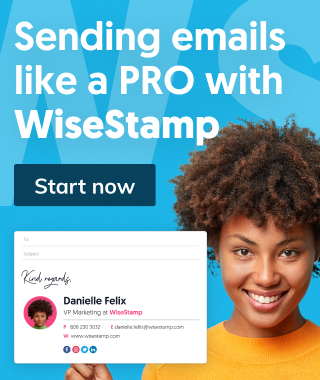The best email opening lines for every occasion
Learn how to use the best email opening lines to use in different scenarios, so that you’re prepared for anything

We all send emails, we receive emails, we write emails. Yet, somehow, not everyone knows how to write that email that will grab a reader’s attention right from the start.
Aside from the subject line, your email’s opening line is critical in engaging your reader and making them want to continue reading your message, especially if you’re cold-emailing new clients.
Not only that but there are so many different types of emails you send on a regular basis. An email you send to a friend or family member is totally different than the one you’re sending your boss.
It’s not only the message that will be different, but the overall tone should be, too.
An opening line is more than just a greeting or a simple introduction. In order to have the most impact with your emails, using the right opening line for the right situation is key.
Here, we’ll go over the best email opening lines to use in different scenarios, so that you’re prepared for anything
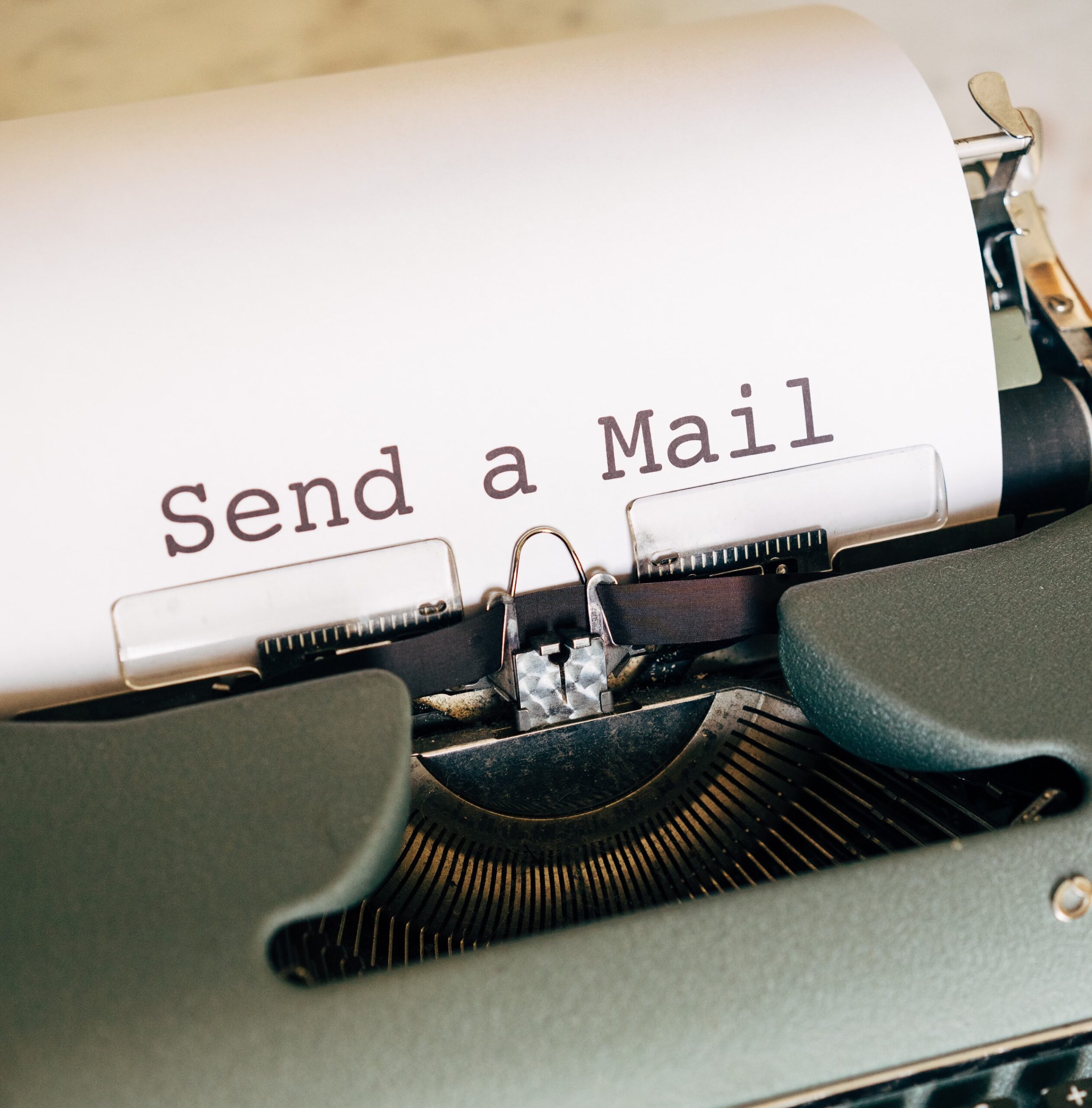
Tips for writing an engaging email opening line
Before getting into some examples, let’s lay the groundwork for what makes an opening line in an email work well.
In general, you should keep your opening line short and to the point, but still leave enough of an invitation and intrigue to get the reader to want to continue reading more. Easier said than done, right?
Truthfully, it doesn’t have to be overly complicated. There are some simple tips you can use to keep your opening lines fresh and exciting. Here are three things we recommend doing;
1. Find common ground
One of the most widely known rules for making any connection, whether digitally or in-person.
Is to try and find some commonality or shared interests. Of course, the common ground you try and look for will vary depending on who you’re emailing.
In a professional email, you might try and point out similarities in your work or mention that you both attended the same conference.
In a more casual or personal email, on the other hand, you might consider bringing up things like the fact that you went to the same school, or even that you liked a post of theirs online.
2. Create a personal connection
Aside from finding common ground, if you can find a personal connection between yourself and your recipient, then that does a good job of establishing trust and credibility.
You can bring up that you got your recipient’s email from a colleague or professional acquaintance, or that they were recommended by a mutual connection.
Leaning on your network is important here since that personal connection will likely pique the interest of your recipient and make them more likely to answer you if they feel like they know you by extension.

3. Reference an event or trigger
Cold emails don’t have to be impersonal. If you do some research on your recipient, whether it’s a company or an individual, you might be able to learn something about them.
For example, if you see a company launch a new product or have an upcoming event, don’t be afraid to reference that as your opening line. It’ll be sure to catch their attention since the company is already likely focused on that topic.
This also shows prospective clients, employers, or partners that you’ve done your research and you’re not just sending out random emails, but rather you’re distinctly interested in them or their work.
What to avoid when writing an opening line
Ok, so we covered what to do when writing on an email opening line, but what about what not to write?
When sending out an email to a prospective client, the last thing you want to do is bore them into deleting your email. Likewise, in an email to someone you already know, you want to continue building your rapport.
In addition to knowing what to write, you should also be aware of what makes an opening line unappealing. Here are a few things you’ll want to avoid:
1. Your opening line isn’t original
“Hi, my name is…” isn’t really a riveting opening line. If you’re going with the tired classic opening of introducing yourself. Then providing a long-winded description of your company or your motivation behind sending an email, your message isn’t likely to land.
Your email shouldn’t sound like you copy-pasted it to a hundred different people on a mailing list. Keep your opening line original, personal, and intriguing.
2. You lack authenticity
When your email lands in the inbox of a prospective client, a recruiter, or a new connection, you’re nothing but a name on a screen. With a boring opening line, you’re not likely to go far.
Instead, if you use the tips we recommended and try to establish a personal connection or mention something you have in common. You’ve already made yourself seem more authentic, relatable, and well, simply more human.
3. Your opening line is too vague
If your opening line isn’t to the point and uses vague or general jargon, then your message will probably fall on deaf ears.
No one wants to get an email that’s unclear or difficult to decipher from the get-go, so make sure your whole email, and especially your opening line, is clear, readable, and concise.
Email opening lines for every occasion with examples
Formal email opening for all circumstances
If you are not sure which business email opening lines to use, you can always fall back on these formal email opening lines.
With a Formal email opening line, you will always sound professional and business-oriented
- I hope this email find you well.
- I hope all is well with you
- Hope you’re having a lovely week.
- I hope you are doing well
Work and business email opening lines
Here are a few opening lines to use in a work or business setting. Some of these lines are more suited to specific scenarios, like a manager communicating with an employee, but in general, these can be used in most work emails.
- Is X a priority for you right now?
- How can I make your life easier?
- Can you give me an update on
- I’m getting back to you regarding
- Following up on our call/meeting
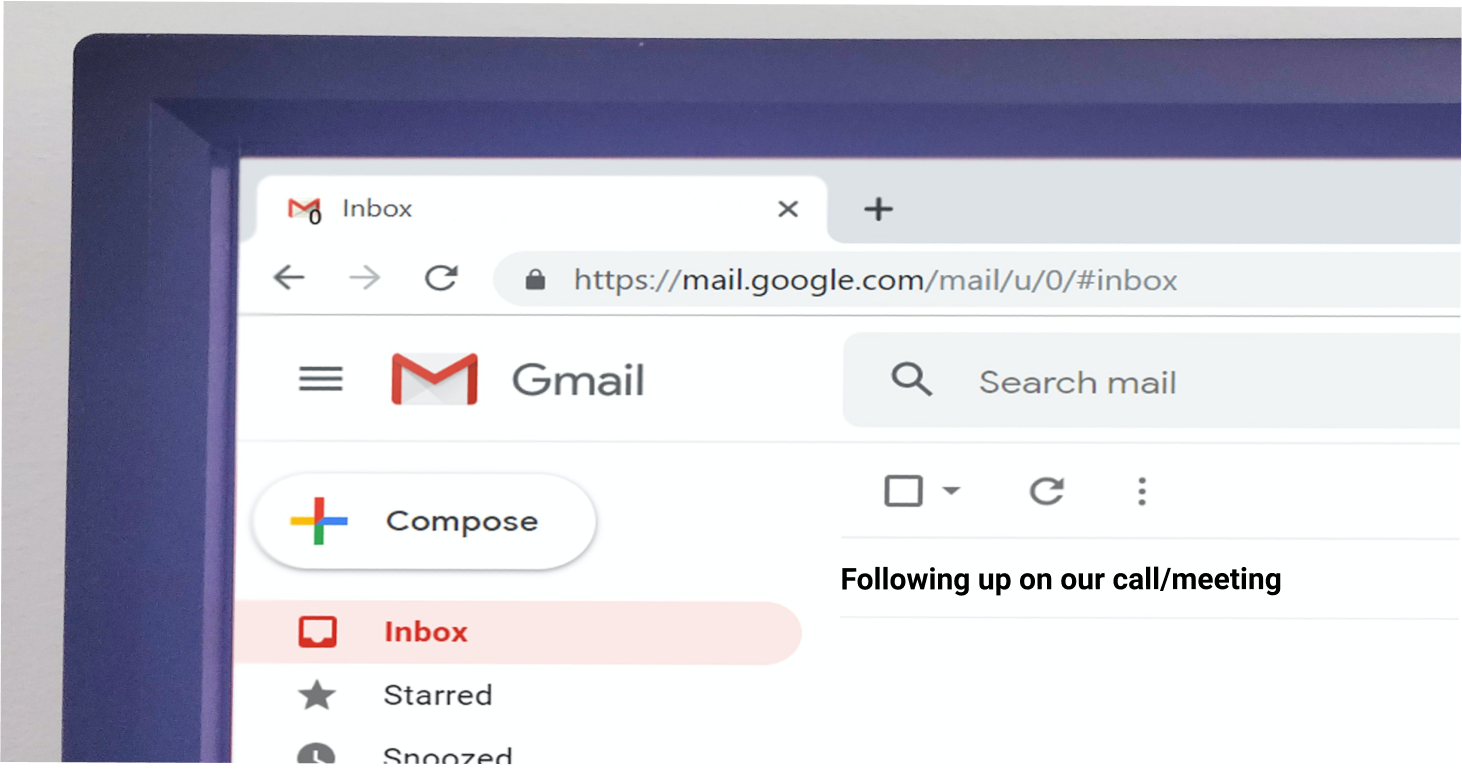
B2C professional email opening lines
When you’re emailing a client, you want to keep things professional. There are a lot of different reasons you might email a customer.
It could be as part of a marketing email, or maybe you’re following up on a previous message. Here are some good opening lines to use for a few different scenarios:
- I’m really happy you purchased X, are you happy with it?
- We’re really excited to tell you about our new product…
- Thanks for purchasing X, I’m here to answer any questions you might have
- In reference to our last call about X…
- What are your thoughts on…
Cold email opening lines
Here’s where you can get very creative and try different approaches to opening lines.
Test out a few different ones and see what elicits the best response. Questions? Open-ended statements? Here are a few we suggest trying out:
- I recently helped a company like yours accomplish/save/gain, etc.
- What would you do with an extra X hours/dollars a week?
- I noticed your company recently…
- I saw your competitor recently did/announced X, how are you planning on responding?
- I enjoyed your insightful talk at the Z conference…
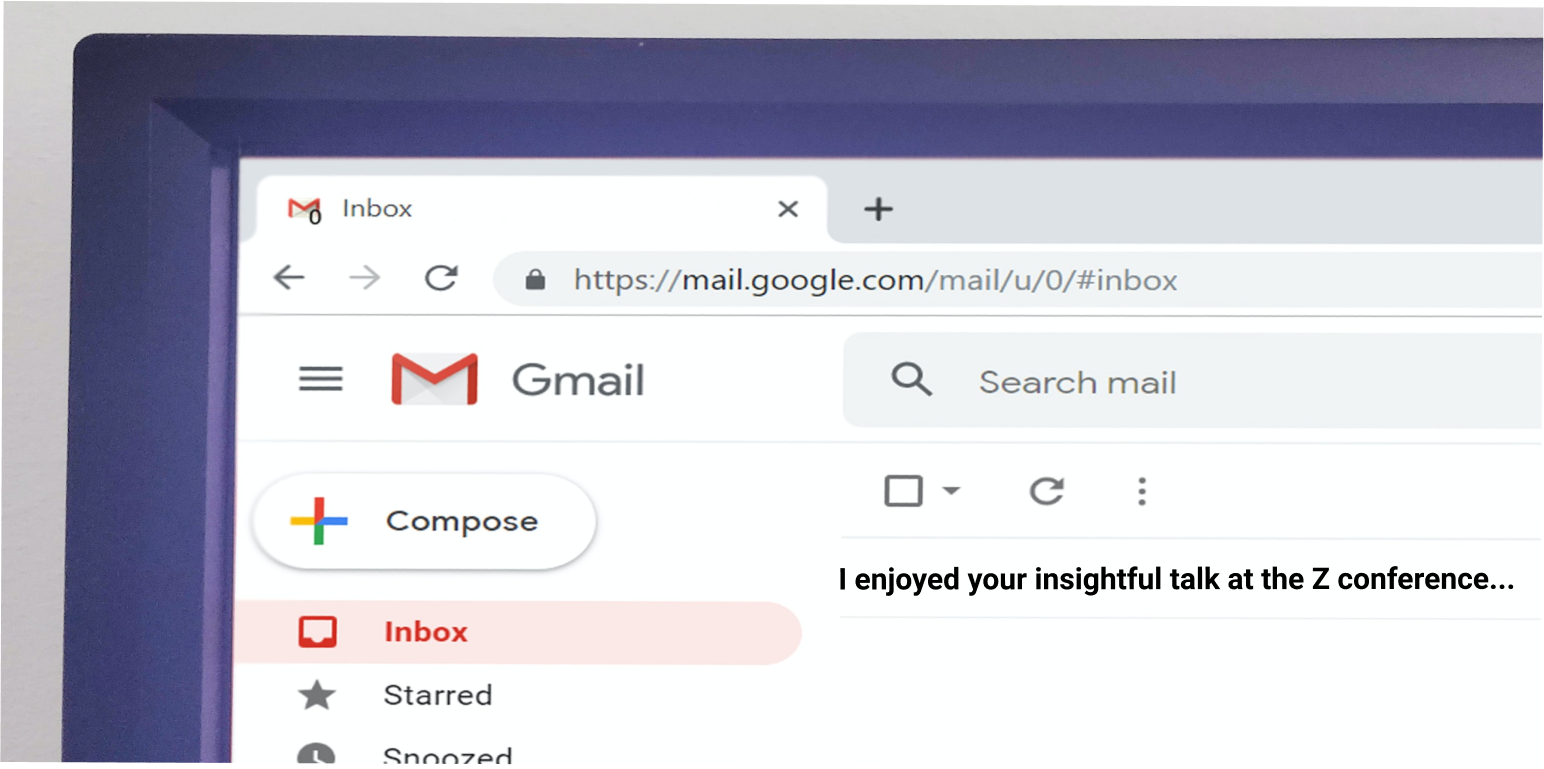
Opening email for job application
When it comes to emailing recruiters, you want to stand out from the crowd. The same tips that we mentioned previously can also be used here!
So, work on establishing a personal connection and staying authentic and original.
- I recently spoke to [name of someone in their organization] about your opening on the customer support team.
- I was inspired by your company’s feature in Forbes regarding X, and I was thrilled to see that there’s an opening for Y position.
- As a content writer for X, I’ve had a lot of success with Y, and I can bring that to your company.
- I’ve been a fan of your blog/product/team for a long time…
- It was great to connect with you at X event and I’d love to speak more about the open position
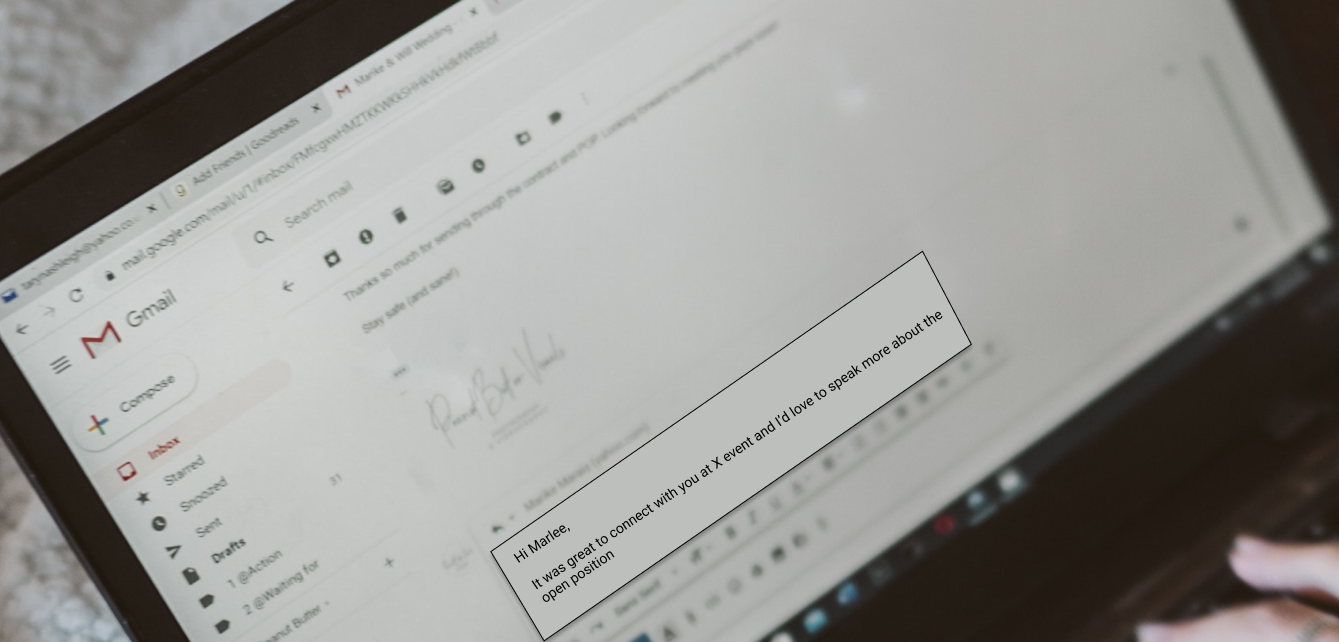
Other business email opening ideas
Aside from the ones we already mentioned, here are a few other business opening lines you can consider using in different situations:
- Congratulations on career move/promotion…
- How do you know [mutual connection]? We previously worked together on a project…
- I have some ideas on how we can address [pain point]
- I read this article recently and I thought it brought up some good points about…
- I have a quick request…
Friendly email opening lines
Of course, you’re not always emailing in a work setting, or even if you are, sometimes you’re really close with the colleague you’re messaging and you can be more lighthearted and friendly in your email.
- How did your recent project turn out?
- I was laughing to myself the other day about [inside joke]…
- This photo/article/video made me think about you…
- I really enjoyed your recent blog post/photo/social post about…
- Congrats on [personal event/accomplishment]!
Funny email opening lines
Sometimes, you just need a little humor to get you through the day. Here are some funny email opening lines you can use to lighten the mood.
Just be aware of when and how you’re using them so that they don’t come off as inappropriate or poorly-timed.
- I hope you’ve already had your morning coffee because…
- Only X more days until Friday!
- Hoping you’re surviving another workweek!
- It’s me again.
- Sorry for ruining your cleared inbox, but…
Polite email opening lines
You don’t always have to start with a very punchy opening line. Sometimes, less is more.
You still want to keep the tone polite and professional, and there are ways to do this without getting very specific about personal connections or common interests.
Here are a few examples:
- Sorry that I missed your call, when can we reschedule?
- I hope you had a relaxing weekend!
- I just wanted to check in with you quickly to make sure that…
- It’s so nice to hear from you!
- Thanks again for your help with…
Best email opening lines
A lot of the opening lines we already went through will work in a lot of different situations.
It’s also nice to have your go-to email opening lines. Especially if you send a lot of emails or are always communicating with customers and colleagues.
Here are a few of the best email opening lines you can use regularly:
- I’m eager to get your advice on…
- Allow me to briefly introduce myself.
- [Shared connection] recommended I get in touch with you regarding X…
- Did you know that [relevant statistic or fact for recipient’s business]?
- I have a really quick question to ask you…
Conclusion: opening and closing email
Once you’ve mastered how to begin an email with a solid and effective opening line, the next step is to keep your reader’s interest throughout your message all the way to the end. It’s no easy task, but it can be done.
In general, as we’ve already mentioned you should keep your emails short, sweet, and to the point.
No one wants to sit and read a long email when they’re in the middle of a busy day, so by sending a short email, you’ll be able to leave some things open for questions and you also show that you value and respect your recipient’s time.
Finally, when you’ve crafted a well-thought-out email, there’s one more step you should take before you hit “send” on your message: adding the perfect sign-off.
Often, a reader will read only the opening line and then scan the email quickly and check the signature to see who the sender is.
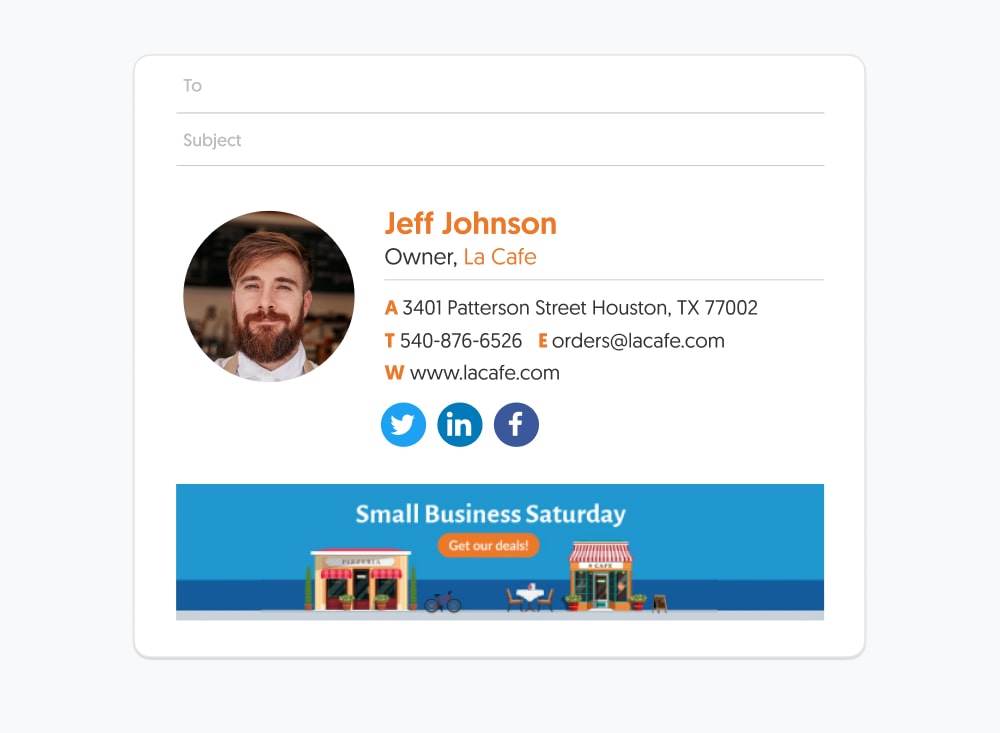
Your email signature conveys important information, like your name, job title, contact details, and sometimes even links to your website or social channels.
This can all be important if you’re cold-emailing someone since you’re inadvertently providing them with more information without actually including it in the body of your email.
Use Wisestamp’s personalized email signature generator to create a strong signature that enhances the content and quality of your message.
You can create your own eye-catching email signature to ensure that your recipients know exactly who they’re communicating with right awayNo comments yet


